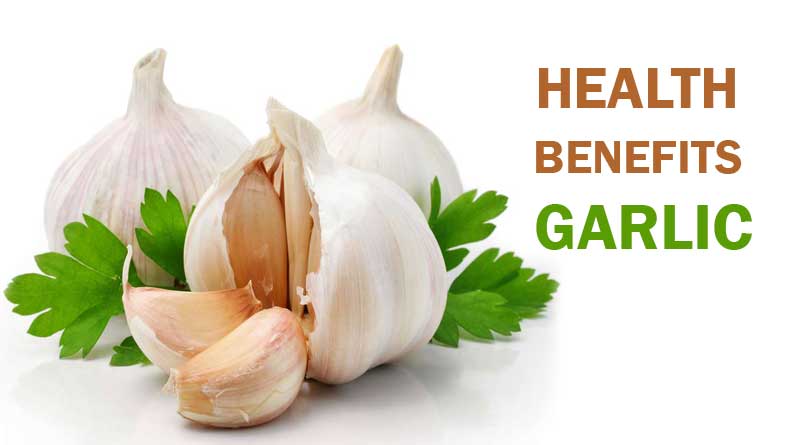The Power of Pomegranate: Unlocking the Health Benefits of this Superfood
From Immune Boosting to Digestive Health: Discovering the Versatile Benefits of Pomegranate
R E A D : Unlocking the Health Benefits of Ginger
Pomegranate is often referred to as a superfood because of its numerous health benefits. This fruit has been used for centuries in traditional medicine to treat a wide range of ailments, and modern research has confirmed many of its health-promoting properties. In this article, we will explore some of the incredible benefits of pomegranate and why it's worth adding to your diet.
> Pomegranate is Packed with Antioxidants
Pomegranate is loaded with antioxidants that help protect your cells from damage caused by free radicals. Antioxidants also help reduce inflammation in the body, which can help prevent chronic diseases like cancer, diabetes, and heart disease.
> Pomegranate May Lower Your Risk of Heart Disease
Heart disease is the leading cause of death worldwide, and pomegranate may help reduce your risk. Studies have shown that pomegranate juice can lower blood pressure and improve cholesterol levels, both of which are risk factors for heart disease.
> Pomegranate May Improve Brain Function
The antioxidants in pomegranate may also help protect your brain from damage and improve cognitive function. Some studies have even shown that pomegranate can help improve memory and delay the onset of Alzheimer's disease.
> Pomegranate May Help Fight Cancer
Pomegranate has been shown to have anti-cancer properties and may help prevent the growth and spread of certain types of cancer cells. Some studies have even shown that pomegranate extract can kill cancer cells in the lab.
> Pomegranate May Help Improve Exercise Performance
If you're looking to improve your athletic performance, pomegranate may be a useful addition to your diet. Studies have shown that pomegranate juice can help improve endurance and reduce muscle soreness after exercise.
Pomegranate has been used for centuries in traditional medicine for its numerous health benefits. This superfood is packed with nutrients that can help improve your overall health and wellbeing. In this article, we will explore some of the surprising benefits of pomegranate and why you should consider adding it to your diet.
> Pomegranate Can Improve Digestion
Pomegranate contains high levels of fiber which can help regulate bowel movements and prevent constipation. The fruit also has anti-inflammatory properties that can soothe digestive inflammation and reduce the risk of gastrointestinal diseases.
> Pomegranate Boosts Immune System
Pomegranate contains vitamin C, which is essential for a healthy immune system. Vitamin C helps protect your body from infections and diseases by supporting the production of white blood cells. Additionally, pomegranate has antibacterial and antiviral properties that can help fight off infections.
> Pomegranate Promotes Healthy Skin
Pomegranate is rich in antioxidants that help protect the skin from damage caused by UV rays and pollution. These antioxidants can also help reduce inflammation and promote skin repair. Drinking pomegranate juice or applying pomegranate oil to the skin can help improve the appearance of wrinkles, fine lines, and other signs of aging.
> Pomegranate Can Help Manage Diabetes
Studies have shown that pomegranate juice can help reduce blood sugar levels in people with type 2 diabetes. Pomegranate also contains compounds that can help improve insulin sensitivity and reduce the risk of complications associated with diabetes.
 |
| Benefits of Pomegranate // iStock |
> Pomegranate May Reduce Inflammation
Inflammation is the root cause of many chronic diseases, and pomegranate has been shown to have anti-inflammatory properties. The fruit contains compounds that can help reduce inflammation throughout the body, which can help prevent diseases such as cancer, heart disease, and arthritis.
R E A D :
- Affects Your Skin and Preventing Skin Symptoms of Diabetes
- Tips for Maintaining Healthy and Beautiful Nails
- Types of personality disorders that we should know
Pomegranate is a superfood with numerous health benefits, but many people may not know how to consume or process it to maximize its benefits. In this article, we will explore some tips for consuming and processing pomegranate to help you get the most out of this amazing fruit.
> How to Consume Pomegranate
Pomegranate can be consumed in several ways. One of the easiest ways is to eat the seeds, which can be scooped out of the fruit with a spoon. Pomegranate seeds can be eaten as a snack, added to salads, or used to garnish dishes. You can also drink pomegranate juice, which is available in most grocery stores.
> How to Process Pomegranate
Processing pomegranate can be a bit tricky, as the fruit is tough and the seeds are encased in a bitter white membrane. One way to process pomegranate is to cut off the top of the fruit and score the skin into sections. Then, submerge the fruit in a bowl of water and break it apart to release the seeds. The seeds will sink to the bottom, while the white membrane will float to the top. Skim off the white membrane and drain the seeds.
> Pomegranate Recipes
There are many delicious recipes that incorporate pomegranate, from salads to smoothies to desserts. One easy recipe is a pomegranate smoothie, which can be made by blending pomegranate seeds, banana, and yogurt. Another recipe is a pomegranate salad, which can be made by combining arugula, pomegranate seeds, goat cheese, and a balsamic vinaigrette.
> Pomegranate Supplements
If you don't have access to fresh pomegranate or prefer a more convenient option, you can also take pomegranate supplements. Pomegranate supplements are available in capsules or powders and can be found at most health food stores. However, it's important to speak with a healthcare provider before taking any supplements.
Pomegranate is a superfood that can provide numerous health benefits. Whether you eat the seeds, drink the juice, or take supplements, there are many ways to incorporate pomegranate into your diet. By following these tips for consuming and processing pomegranate, you can maximize its health benefits and enjoy its delicious flavor in a variety of recipes.
R E A D : The Healing Brew: A Comprehensive Guide to the Health Benefits of Tea
Pomegranate is a superfood that is rich in nutrients and can provide numerous health benefits. Its high fiber content can help improve digestion and prevent constipation, while its vitamin C and antioxidants can boost the immune system and protect the skin from damage. Pomegranate has also been shown to help manage diabetes and reduce inflammation throughout the body. By adding pomegranate to your diet in various forms such as eating the seeds, drinking juice, or taking supplements, you can reap the benefits of this amazing fruit and improve your overall health and wellbeing.





+-+Symptoms%2C+Causes%2C+Diagnosis+and+Treatment-1920w.jpg)







